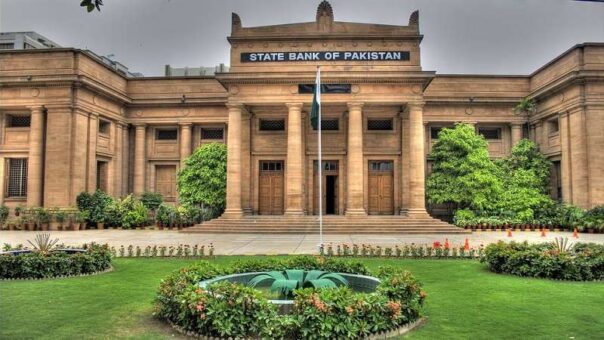Karachi, July 12, 2023 – The State Bank of Pakistan (SBP) has issued a detailed report advising all financial institutions (FIs) in the country to avoid processing cryptocurrencies due to their status as non-legal tender.
In a circular issued in 2018, the SBP explicitly stated that cryptocurrencies are not backed or guaranteed by the Government of Pakistan, emphasizing that they do not hold legal status as a form of payment. Consequently, the SBP does not authorize or license any individual or entity to engage in the issuance, sale, purchase, exchange, or investment in virtual currencies (VCs)/coins/tokens within Pakistan.
The central bank further urged regulated entities to refrain from processing, using, trading, holding, transferring value, promoting, and investing in virtual currencies or tokens.
Crypto assets (CAs), such as Bitcoin and Ether, operate on decentralized ledgers using distributed ledger technology (DLT) and enable peer-to-peer exchange of value in a pseudonymous manner. Unlike traditional financial systems, they are not subject to the control of any particular country or jurisdiction, making them decentralized and independent of central bank regulation.
While acknowledging the growing popularity of cryptocurrencies due to their convenience, anonymity, and speculative potential, the SBP highlighted several concerns. These include implications for monetary policy, foreign exchange regime and flight of capital, financial stability, integrity and misuse for financial crimes, consumer protection, market imperfections and high volatility, environmental impact, and stablecoin dynamics.
The report stated that the lack of globally consistent definitions for crypto assets has prompted central banks worldwide to study and analyze the crypto ecosystem. Central bank digital currencies (CBDCs) are being considered as a potential solution to harness the benefits of underlying technologies like DLT while ensuring regulatory oversight.
The SBP report emphasized the need for regulatory clarity and highlighted the challenges associated with cryptocurrencies, such as their impact on monetary policy, potential risks to financial stability, and their misuse for illicit activities. It also stressed the importance of financial literacy and digital education to fully realize the potential benefits of crypto-assets.
Globally, regulators have taken varied approaches to cryptocurrencies, ranging from imposing restrictions on related activities to outright bans. The SBP report underscores the need for further regulatory clarity and a collective approach to address this evolving financial innovation.
As the debate surrounding cryptocurrencies continues, Pakistan has joined a growing list of countries cautioning against their use, emphasizing the need for comprehensive regulations to address the challenges and opportunities presented by this emerging asset class.
